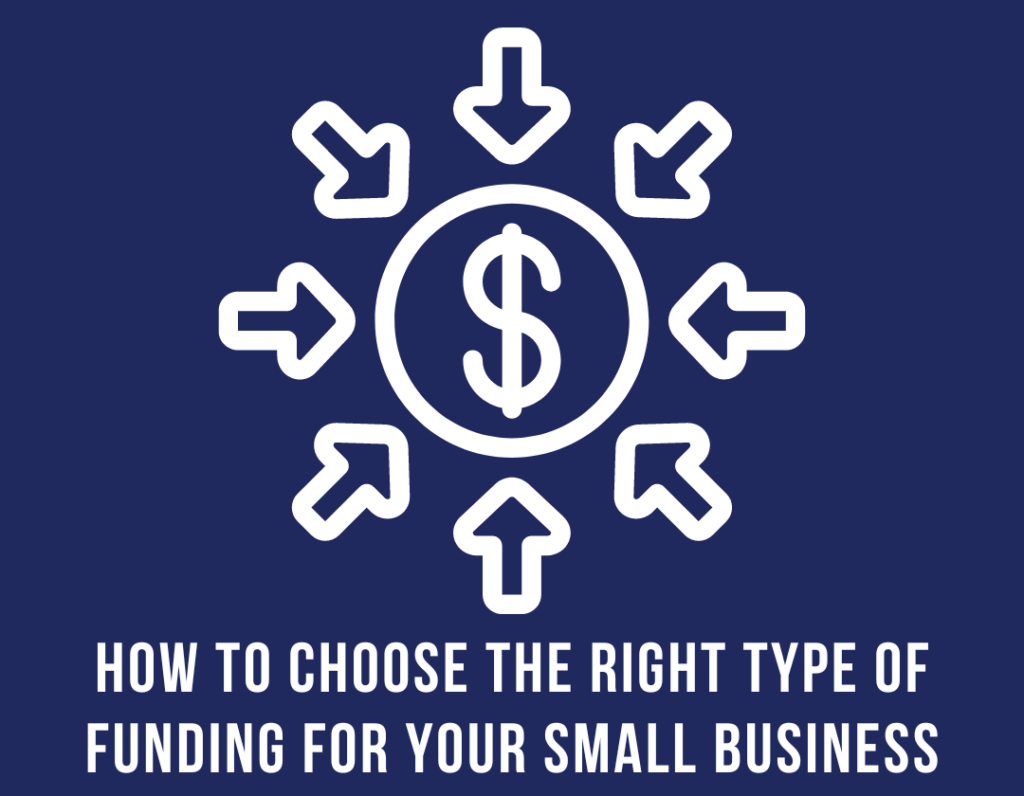How to Choose the Right Type of Funding or Financing for Your Small Business

Navigating the myriad options for small business funding can be daunting. The right choice can propel your business forward, while the wrong one might set you back. Whether you’re just starting out or looking to expand, understanding which type of funding or financing best suits your business needs is crucial. This post will guide you through the key considerations to help you make an informed decision.
Assess Your Business Needs
Start by clearly defining what your funding needs are. Are you looking for capital to cover startup costs, to expand operations, or perhaps to smooth out cash flow fluctuations? The purpose of the funding will often dictate the type of financing that is most suitable. For example, a short-term loan might be perfect for a quick cash flow fix, while equity financing could be better for a significant expansion.
Understand the Different Types of Funding Available
There are several types of funding available, each with its own pros and cons:
- Debt Financing: Includes traditional loans, credit lines, and merchant cash advances. While debt must be repaid with interest, you retain full control of your business.
- Equity Financing: Involves selling a stake in your business to investors, typically venture capitalists or angel investors. This doesn’t require repayment like a loan, but you will have to share profits and potentially some decision-making power.
- Grants: Free money often provided by government entities or private organizations, usually tied to specific industries or purposes and requiring no repayment.
- Crowdfunding: Raising small amounts of money from a large number of people, typically via the internet. This can be a great way to raise funds without giving up equity or taking on debt.
Consider the Cost of Capital
Each type of funding comes with different costs. Loans have interest rates, equity financing involves giving up a share of future profits, and grants may require a significant time investment to apply. Evaluate the cost-effectiveness of each option based on your business’s financial projections and how comfortable you are with these costs.
Evaluate Eligibility Requirements
Not every funding option is available to every business. Some loans require a strong credit score or collateral, while certain investors might only fund businesses in specific industries. Research the eligibility requirements for each type of funding to determine which ones are realistic options for your business.
Reflect Long-Term Impacts
Consider how each funding option will affect your business in the long run. Debt might strain your cash flow due to regular repayments, whereas giving up equity could influence your control and decision-making. Choose a funding route that aligns with your long-term business goals and growth strategy.
Choosing the right type of funding for your small business involves a careful balance of understanding your immediate needs, the cost of capital, eligibility criteria, and long-term impacts. Take the time to evaluate each option thoroughly and consider seeking advice from financial advisors or mentors.
Still unsure about the best funding option for your business? Visit our Finance Learning Center for detailed guides and resources that can help you make the best financial decisions for your small business’s future.



